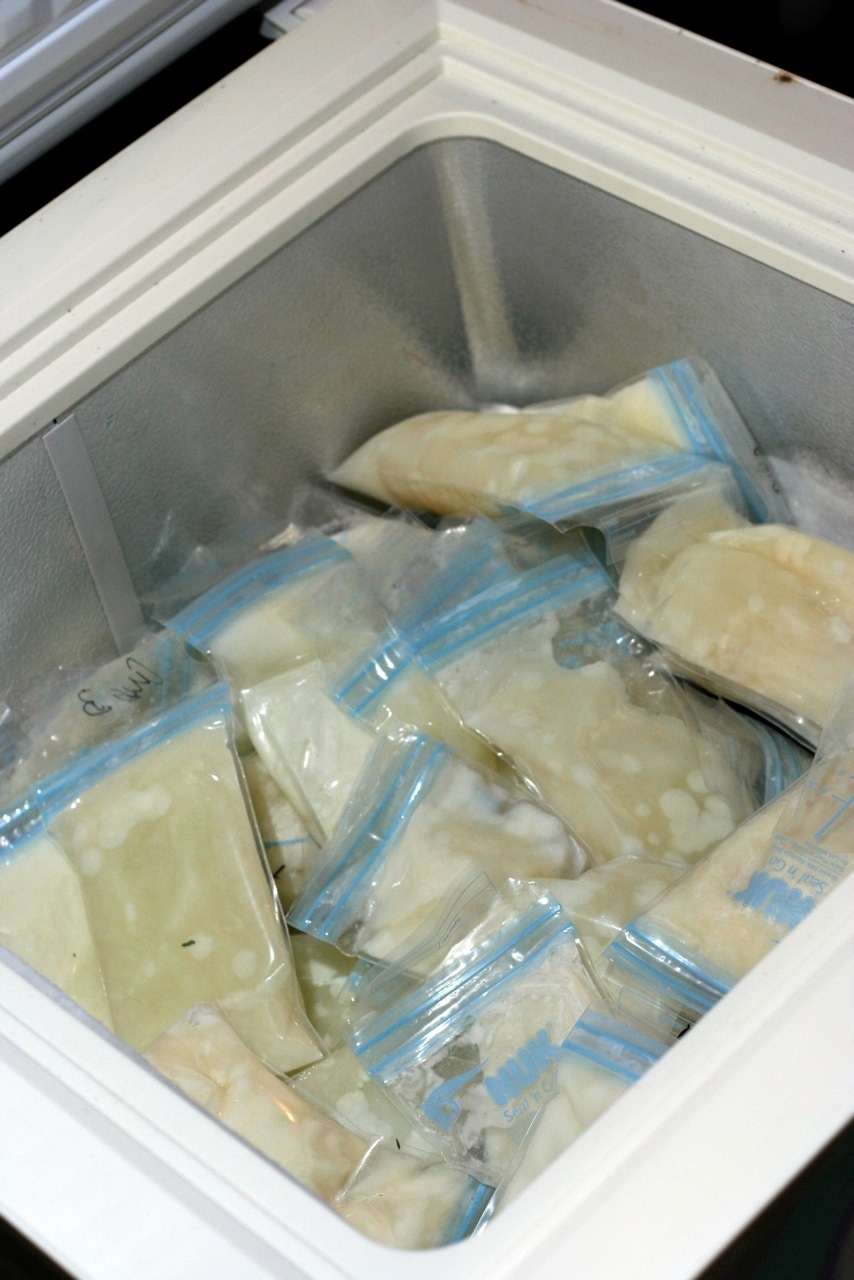
In the comments section of my previous piece, "How I Learned to be a Breastfeeding Dad," I noticed some confusion concerning the ins and outs of milk sharing. That topic is the focus of the following post.
I must confess that I've always been a bit of a technophobe. I'm not great with computers and can barely figure out my own iPad (that my partner, Ian, insisted on buying for me since I'm a "writer" now). I spent years feeling leery of social networking sites, especially the all-powerful, privacy-demolishing Facebook. Now, I am eating my own words -- Facebook is essentially feeding my baby and I couldn't be more pleased.
When I first heard about strangers meeting online to share breast milk, I was taken aback. In November 2010, during our second trimester of pregnancy, Health Canada put out a warning about the practice. Stated concerns over casual milk sharing included the possible transmission of HIV, contamination with bacteria that could cause food poisoning, as well as trace amounts of prescription and non-prescription drugs passing into breast milk. At the time, Ian and I completely agreed that we would rather feed formula to our baby than some stranger's bodily fluids. A little while later, our boy was born, and our world changed forever.
On his fourth day of life, we realized that our baby Jacob needed to be supplemented because I wasn't making enough food for him. I am a transgender dad and I breastfeed -- a story for another time, but you can read about it on my blog, www.milkjunkies.net or here at the Huffington Post. As I looked at my perfect, innocent child, I felt in my gut that if at all possible, I would rather not feed him a heavily processed food so early in his short life.
I did some reading and learned that formula, too, has its risks. A quick Google search for "formula recall" brings up a daunting list of troubling incidents, including baby deaths. I learned that the effect of even one feeding of formula on an infant's gut flora is less dramatic, but far more pervasive. At birth, a baby's digestive tract is immature and as lactation consultant Marsha Walker writes in "Just One Bottle Won't Hurt -- Or Will it?", "the tight junctions of the gastrointestinal mucosa take many weeks to mature and close the gut to whole pathogens and proteins." According to Walker, a normally breastfed baby's gut pH will be altered for weeks due to just one feeding of formula.
Now, my partner, as an adoptee, was raised on formula, and he is a relatively healthy adult. However, having read about some of formula's risks, we decided to try to do better for our newborn. We began to re-think the supposed hazards of breast milk sharing. First, we realized that most pregnant people in Canada are screened via blood tests for HIV and other transmissible diseases. Although the few milk banks that exist in North America pasteurize all donations, Norwegian milk banks operating continuously since 1941 have always left most breast milk in its raw form, apparently without incident.
We decided to thoroughly interview potential donors, and entered the realm of online milk sharing through the Facebook group Human Milk 4 Human Babies (HM4HB). What we discovered was extraordinary generosity facilitated by the Internet. Emma Kwasnica, the founder of the network, recently shared with me a story of how in 2010, from her home in Montréal, Canada, she connected a single father in Indonesia with a breastfeeding counselor who came up with eight local Indonesian breast milk donors. This match was made in a matter of hours through Ms. Kwasnica's personal Facebook page and enabled the dad in question to feed his baby solely on breast milk for over one year. It also showed Ms. Kwasnica the need for a world-wide milk sharing strategy.
HM4HB, now a rapidly growing global milk sharing network, does not permit the exchange of cash for breast milk. The group does not attempt to screen donors or recipients, although it encourages families to do so themselves. The network simply provides a space for people to post about their offers and needs and a way to get in touch. Some donors are able to give a small one-time stash while others donate large amounts on an ongoing basis. Recipient babies need not be sick or premature, and there is no age limit specified.
Our personal donors have had a myriad of reasons for giving their milk. One woman pumped for her baby and ours for almost an entire year. Her baby had been born premature and never succeeded in latching on to the breast. The mom had an easy time pumping and regularly ended up with more breast milk than she was able to store in her deep freezer. She was happy to give her milk to another baby rather than throw it down the drain. Another mother pumped milk for her baby to consume while she was out, only to find that her infant refused to take a bottle. I recently read a story about a mom who found some solace in pumping and donating her breast milk after her own baby passed away.
In turn, we have become known in our local parenting community as guys who tend to have lots of milk sitting in our freezer. On three occasions, we've been able to quickly pass along some of our own stash to a newborn while her mother tried to work out breastfeeding issues.
A few years ago, before the existence of HM4HB on Facebook, our baby would have been primarily formula-fed. Ironically, for many months the social networking site has also been removing comparatively modest breastfeeding photos from members' walls due to supposed indecency. I can only say that I am left with a love-hate relationship with the Facebook empire -- it is the frame that both supports and attempts to limit our human milk sharing engine.